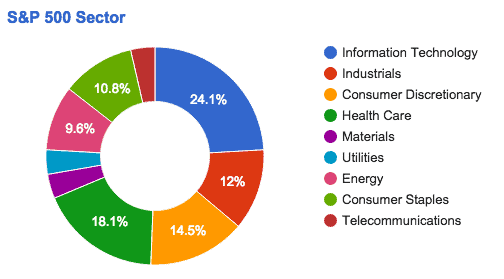Spotlight: BX Dividend Stock
What is a Dividend Stock?
A dividend is a payment a corporation makes to its shareholders—people who have bought stock in the company. A dividend stock, then, is any stock that pays dividends to investors on a regular schedule. Usually, dividends are paid out in cash form, but in some cases, a company will choose to pay dividends in the form of more stocks.
Each company can set its own payout schedule, but it’s most common for companies to pay dividends on a quarterly basis. Dividends are paid on a per-share basis, so the more shares you own in a company, the larger percentage of the total payout you’ll receive.
A dividend “yield” is the amount that experts predict a stock will pay out over the course of the year. The yield is expressed as a percentage of the stock price. Since stock prices fluctuate all the time, so do dividend yields.
Companies typically decide to pay dividends on their stocks to attract more investors. It’s also an excellent way to spend excess capital in a way that shareholders approve.
Dividend stocks make good investments for people who are looking to make traditional “buy-and-hold” investments, rather than those who plan to move their money around a lot. Dividend stocks tend to feature good long-term returns.
What is BX?
BX is the stock market ticker symbol for the Blackstone Group, a large and influential private equity, asset management, and financial services company based in New York City. The Blackstone Group founded in 1985, but it went public in 2007 with a $4 billion IPO. They have since become the largest alternative investment firm in the world.
What to Look for in a Dividend Stock
When looking for a potential investment, the first thing you should consider is consistency. Has the company’s dividend yield stayed relatively stable over the years? You may think that huge growth is a positive feature, but that usually leads to a bubble, meaning that yield will come crashing down shortly. If this is a long-term investment, a steady dividend yield is what you want.
Obviously, the stock’s overall valuation is important, because your dividend payments will be a percentage of that value.
Stock prices fluctuate all the time, but again, slow and steady is the key thing to look for in the growth of a long-term investment. The performance history and earnings growth should show a gradual increase over the span of several years, rather than dramatic highs and lows on a more short-term basis.
Here are some more questions you should ask your financial advisor, or at least keep in mind as you look for potential investments.
- Is its annual yield within the top 25% of dividend stocks? If not, you should look for something more lucrative.
- Has the payout per share increased over time?
- Are the stock’s earnings large enough to pay the dividend at the current rate?
- Are its future earnings predicted to cover dividends at the current rate?
With all of that in mind, we can determine which dividend stocks are most likely to provide a stable income for you in the future.
Are BX Dividend Stocks a Good Investment?
This is a complicated question, as we’ve proven in the previous section. To answer it, we’ll go over all of the Blackstone Group’s numbers in detail, and look for answers to the specific questions we asked earlier. First, let’s cover the Blackstone Group’s historical data.
BX Dividend Stock Historical Data
Over the last five years, BX’s annual earnings growth (the increase in what investors earned from the stock) was an average of 25.2%. However, in the last year, their earnings growth was only 3.4%, so it has significantly decreased.
Blackstone’s dividend per share was volatile over the last decade, with the payouts dropping over 20% in one year. However, the dividend per share has increased overall in that time.
When looking at a potential investment, you want the annual earnings growth and dividend per share to stay relatively stable, with gradual increases over the years. This historical data shows that BX’s earnings growth and dividend per share have fluctuated more than usual, though the payouts are higher now than they were ten years ago.
Now we’ll look at how analysts predict Blackstone’s stock will perform in the future—between one and three years from now.
BX Dividend Stock Future Expectations
BX’s annual growth in earnings is expected to average out to 17%. While that’s significantly higher than it was this past year, it’s still lower than what the industry considers “high growth,” which is 20%. It’s still higher than the market average.
Blackstone’s revenue growth (the increase in a company’s earnings) will stay positive at 5.8% but will continue to be below the US market average of 20%. BX’s return on equity—which is essentially a measure of how efficiently they use shareholders’ funds—is expected to be around 38%, which is considered high.
Overall, it looks like Blackstone’s dividend payouts will increase over the next few years, though their revenue will be slow to catch up. Typically, you’d want a company’s revenue growth to increase at the same rate as their annual earnings growth.
Now we’ll analyze how the Blackstone Group is currently performing.
BX Dividend Stock Current Performance
Let’s start with the negative. As a company, the Blackstone Group is currently able to meet all of its short-term (one year) commitments using its holdings of cash and other short-term assets; however, their current assets would not cover their long-term commitments.
Their level of debt compared to their net worth is much higher than you’d want it to be. A 40% debt to net worth ratio is considered high; Blackstone’s debt to net worth rate is a staggering 109%. To put that in perspective, it means their current assets total less than half of the debts they owe.
Blackstone also has a negative operating cash flow, which means they’re spending more than they’re making. Their current dividend payout is 105% of what the stock earns, which means the dividend is not well-covered.
Though it’s not necessarily indicative of how well their stock is doing, we also looked at their CEO’s compensation. Blackstone’s CEO, Steve Schwarzman, currently makes about $47 million per year, which is higher than average for a company of this size and profit level. This could imply that Blackstone is not using their capital wisely.
Now for the positive. The current annual income from BX dividends is 8.39%, which is well above the market average for top dividend payers (3.95%). BX’s dividend yield is expected to drop down to less than 8% over the following months, but the overall earnings per share should still increase because their stock prices are expected to go up.
BX stock prices are lower than usual right now, which means now is an excellent time to invest in them if you are choosing to do so.
Are BX Dividend Stocks a Good Investment?
Now that we know everything there is to know about Blackstone’s past, present, and future financials, we can determine whether or not it’s a good idea to purchase their dividend stocks.
When we make our recommendations, we’re going to assume that you’re the average investor: middle-class, risk-averse, saving for retirement, and looking for steady growth over a long time.
As we mentioned in the previous section, BX stock prices are abnormally low right now, but they’re expected to go up soon. That might tempt you to throw in your money as quickly as possible, but you should still be cautious.
Blackstone’s dividend stock has not been very consistent. The prices, dividend yield, and overall growth have seen many large spikes and dips over the past decade. Also, the company’s current financials are not very strong. Their net worth is significantly lower than their debt, their operating cash flow is negative, and their CEO receives an abnormally large salary.
However, BX’s future outlook is more favorable. They’re expected to increase their profits enough that their dividends will be more than covered, their debt to asset ratio should improve, and their stock prices would rise accordingly.
Overall, Blackstone is still one of the top payers of cash dividends, and their dividend yield has increased over the years, though it’s been a bumpy road. They’ve made a lot of investors a lot of money.
With all that said, we do recommend that BX dividend stocks be a part of your investment portfolio, but you’ll need to be cautious and patient. With a stock this volatile, it can be hard not to sell when things get rough, or when prices shoot up unexpectedly.
If you buy your BX dividend stocks and then let them sit, you should see a nice return on your investment, as well as some extra income from quarterly dividends.











